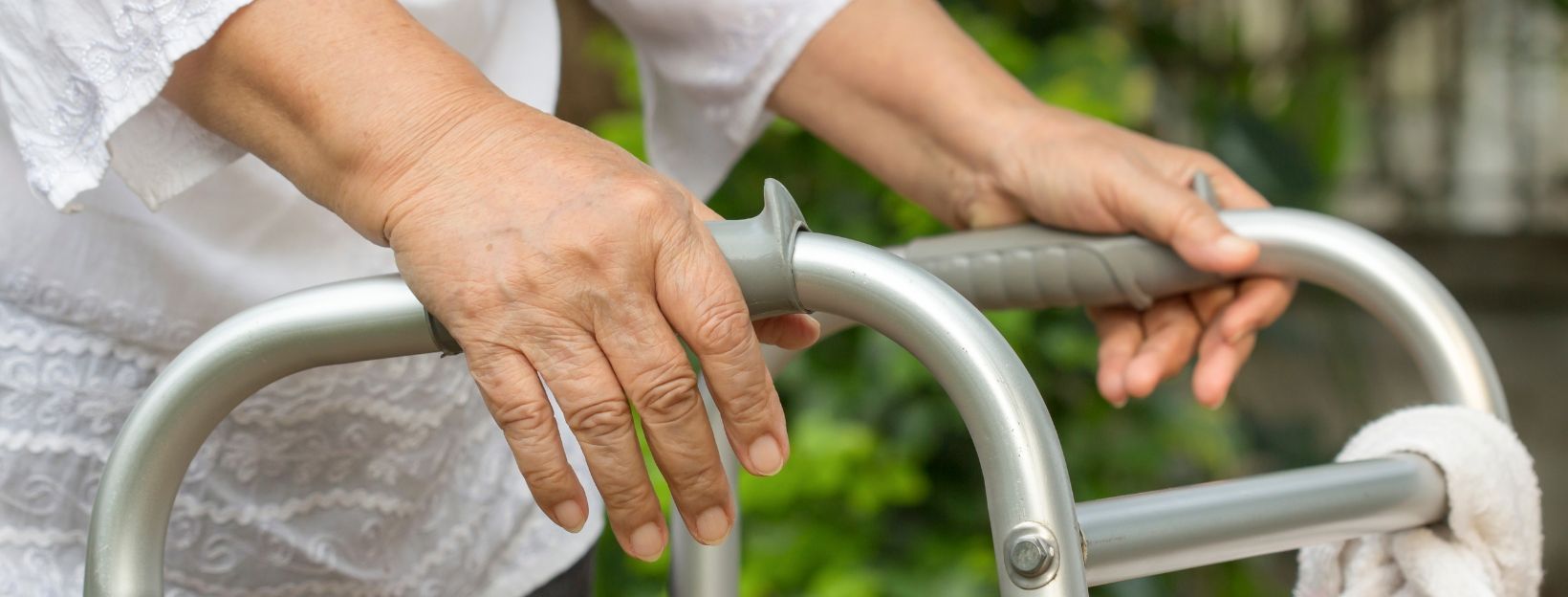Civil rights law encompasses the American Disability Act (ADA), which ensures people with disabilities, sometimes called special needs, have equal access to education, work, and community living.
Some people’s special needs begin early in life, and their experiences link to government benefits programs their whole lives, while others experience special needs as they age. Many aging Americans will develop problems with seeing, hearing, and mobility. Others may experience chronic illnesses like arthritis, memory loss, diabetes, or hypertension. These individuals may fall under the ADA definition of disability when age-related changes make getting around the home, going to work, or participating in their community more difficult.
Accepting Age-Related Disability Status
According to the ADA, those experiencing special needs in older age typically don’t think of themselves as being disabled or having special needs, even when coping with mental or physical impairments that severely limit their activities. Dismissing these new challenges affects their daily lives, loved ones who care about them, and their well-being.
Age-Related Disability Categories
Many life activities that age-related disability/special needs affect include:
- Health Care – Health care providers are ADA required to provide reasonable modifications for patients with special needs, including communication assistance with filling out forms, reading the fine print before signing documents, and more.
- Housing
– The Fair Housing Act, under the Department of Housing and Urban Development, applies to buildings with four or more units. Building codes require physical accessibility, and housing providers must provide reasonable modifications and accommodations to tenants with disabilities/special needs. These accommodations may be as simple as a designated parking space closer to the apartment door or permitting the payment of rent by mail.
- Work
– The ADA supports those able to continue performing their existing work with accommodations, such as employee assistance, work environment adaptations, or scheduling to avoid undue hardship to the worker or employer. For example, a workplace may provide a larger monitor or screen reader for employees experiencing age-related vision loss as a reasonable accommodation.
- Travel and Transportation – By law, public transport, such as buses, subways, taxis, or light rail, must provide disability/special needs accessibility. This protection extends to aircraft, including the right to bring a service animal.
- Hospitality and Entertainment
– Restaurants, theaters, arenas, museums, and hotels must accommodate those with special needs. Reasonable modifications are required to practices, procedures, and policies upon request, as long as they don’t constitute an undue burden.
- Public Places – Public spaces and activities controlled or owned by local or state government (government buildings, parks, streets, sidewalks, etc.) must maintain reasonable access and provide requested modifications. For example, a town hall meeting hosted by a city must ensure the entryway is accessible for those with mobility devices.
Program of All-Inclusive Care for the Elderly (PACE)
The Department of Health and Human Services (HHS) PACE program provides comprehensive social and medical services to frail elderly individuals combating age-related special needs services. Most of these individuals are dually eligible for Medicare and Medicaid benefits.
PACE provides a team of health professionals that coordinates care for participants. The comprehensive service package enables most recipients to remain in the community rather than institutional care. It permits providers to deliver all services required rather than only those reimbursable under Medicare and Medicaid plans.
How a Disability or Special Needs Attorney Can Help
Individuals with age-related special needs or disabilities can apply for numerous government benefit programs with the help of an elder law attorney or special needs attorney to ease the frustrations and limitations of living with a disability.
Medicare
This federal health insurance program is for those 65 or more and individuals with disabilities. The benefits program covers various medical services, including doctor visits, prescription drugs, and hospital stays.
Medicaid
This program is a joint federal and state government providing healthcare coverage to people with low incomes or disabilities. Benefits cover a wide range of medical services, including long-term care.
Social Security Disability Insurance (SSDI)
This federal program provides financial help for those with disabilities who can’t work. SSDI benefit amounts are determined by an individual’s work history and earnings.
Supplemental Security Income (SSI)
This federal program provides financial assistance to those with disabilities who are also low-income. An individual’s resources and income determine benefit amounts.
Vocational Rehabilitation Services
This state-funded program provides employment services to those with disabilities/special needs in a job environment, including training, placement, and accommodations.
Aging and Disability Resource Centers (ADRCs)
ADRCs are community-based organizations providing referral services and information on available programs and services to those with disabilities and their families.
Getting the Help You Need
Various programs are available to support individuals with age-related special needs or disabilities. A special needs attorney helps individuals and their families navigate government benefits programs to determine eligibility for benefits that best meet their needs.
Many aging adults with declining health are unaware of the programs and benefits that can help them with health care, housing, work, transportation, and more. An elder law or special needs attorney can help coordinate your approach and ensure you receive the help you need from the programs available in your state. For help with New York State special needs planning, contact Rochester Elder Law. We'd be happy to share more information or schedule a consultation with one of our experienced attorneys.
more news you can use



Still have questions?











